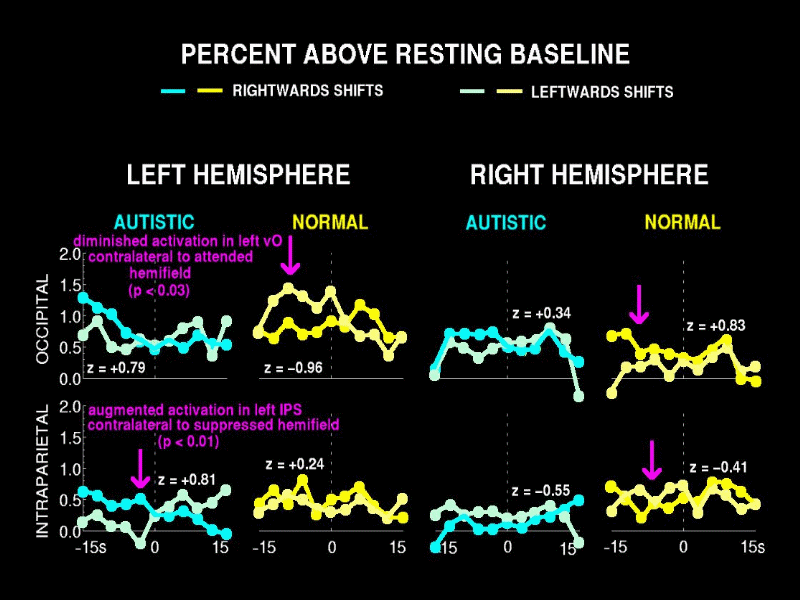










We detected this same abnormally weak modulation in visual cortex using fMRI.
At the same time, we found a region in the posterior extent of intraparietal sulcus that was abnormally strongly modulated as a function of attention, except that this region seemed to be switched on contralateral to the unattended stimuli.
This is an area that's been identified in normal subjects as active during suppression of visual distractors.
This finding raised an interesting question: if people with autism are failing to turn off early processing of irrelevant inputs, might their intact behavioural performance be a result of a compensatory strategy involving some later process in which these inputs are actively suppressed?
Copyright © 2004 Matthew Belmonte. All rights reserved.